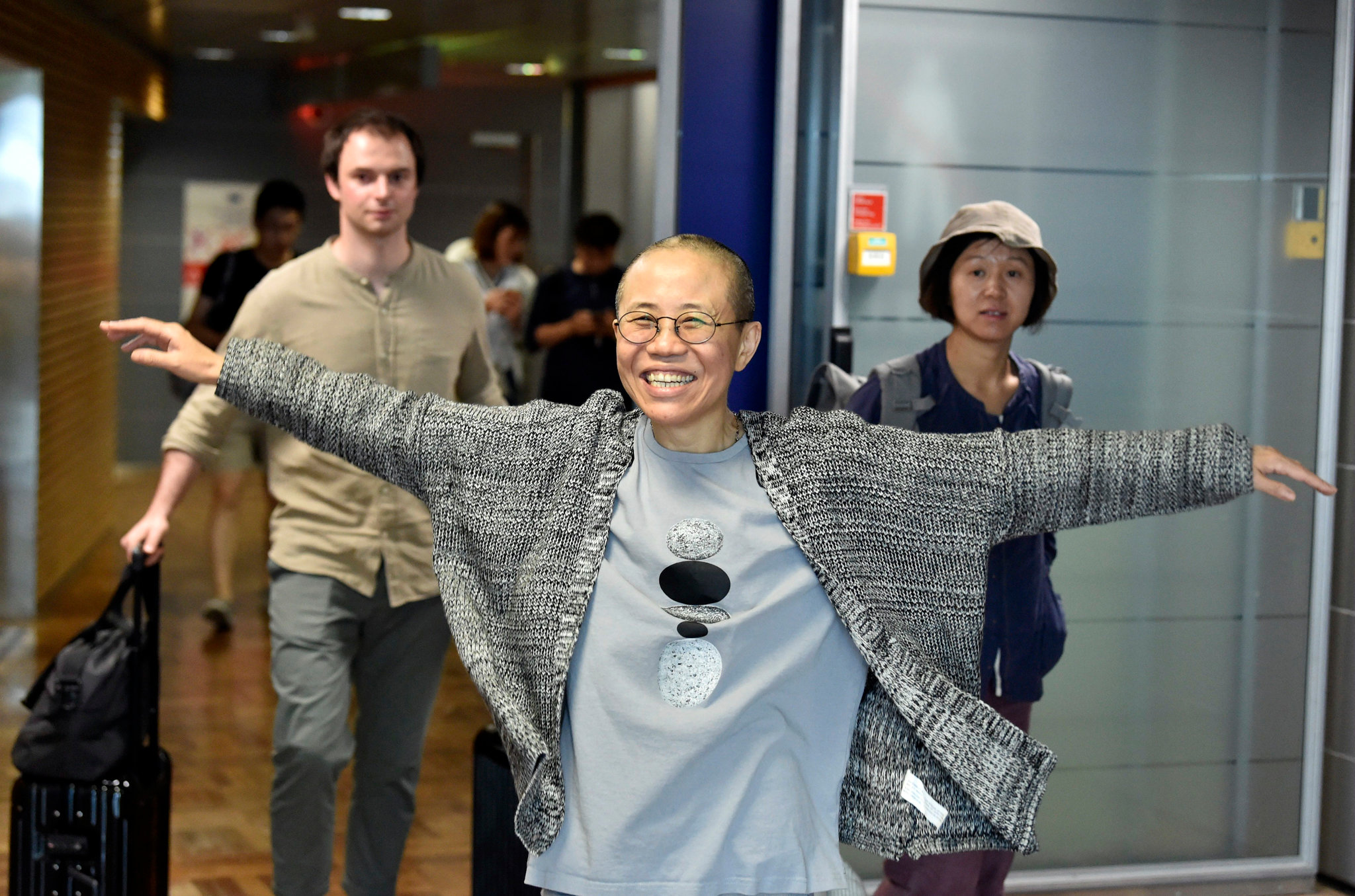
Photo: The New York Times
Liu Xia jubilantly spread her arms wide as photographers recorded her arrival in Finland from China, free at last after nearly eight years of de facto house arrest.
She has walked a difficult path through the years. She has never been accused of a crime. The perception was created that she was the subject of punishment because of her husband, activist and Nobel Peace Prize winner Liu Xiaobo.
Liu Xiaobo was sentenced in 2009 to 11 years in prison for “subversion” for his role in drawing up a manifesto calling for reform in China. The next year he was China’s first recipient of the Nobel Peace Prize for his “long and nonviolent struggle for fundamental human rights.”
The Chinese government immediately placed Liu Xia under house arrest. Whilst maintaining that she was free to go where she wished, in practice she was forced to stay in her house, permanently under surveillance. Reporters and diplomats were barred from meeting her.
When her husband contracted cancer, international calls were made for them to be allowed to travel overseas to get potentially life-saving treatment. The Chinese government refused. Liu Xiaobo died of late stage liver cancer in July 2017 in a prison hospital.
Despite her isolation, she occasionally managed to make contact with friends and supporters. In a letter published last year, Liu wrote she was “going mad” in her isolation, according to the AFP news agency. “Too solitary,” the note read, “I have not the right to speech / To speak loudly / I live like a plant / I lie like a corpse.”

With her husband Liu Xiaobo
Photo: Reuters
“The deaths of our mother, father and then her husband in the course of just two years had a massive impact on her health,” Liu’s brother Liu Hui told Radio Free Asia after her departure. “She isn’t in the best of health, whether physically or mentally.”
“I hope that the first thing she’ll be able to do is take care of her physical and mental health, then gradually start her new life,” he said.
In Washington, the State Department welcomed Liu’s release and urged China to release all of its political prisoners. “We continue to call on the Chinese government to release all prisoners of conscience, and to respect the human rights and fundamental freedoms of all individuals,” the department said in a statement.
And Zeid Ra’ad Al Hussein, the United Nations High Commissioner for Human Rights, welcomed the development, but called on Beijing to allow Liu Hui to follow her.
“I hope Liu Xia can find some personal peace and restore her health in Germany,” Hussein said in a statement. “I hope too that Chinese human rights defenders, their families and lawyers, who have been deprived of their liberty for expressing critical views, will be released.”
He added: “I share the concerns about the future of Liu Xia’s younger brother, Liu Hui, who remains in China and hope he will be allowed to join his sister in Germany if he so wishes.”
“There is still the sword of Damocles hanging over Liu Hui’s head, should his sister start shooting her mouth off over in Europe,” Beijing-based rights activist Hu Jia, a close friend and long-time supporter of Liu’s, said.
Liu Xia’s difficult road is not over despite her release.




 Print
Print Email
Email